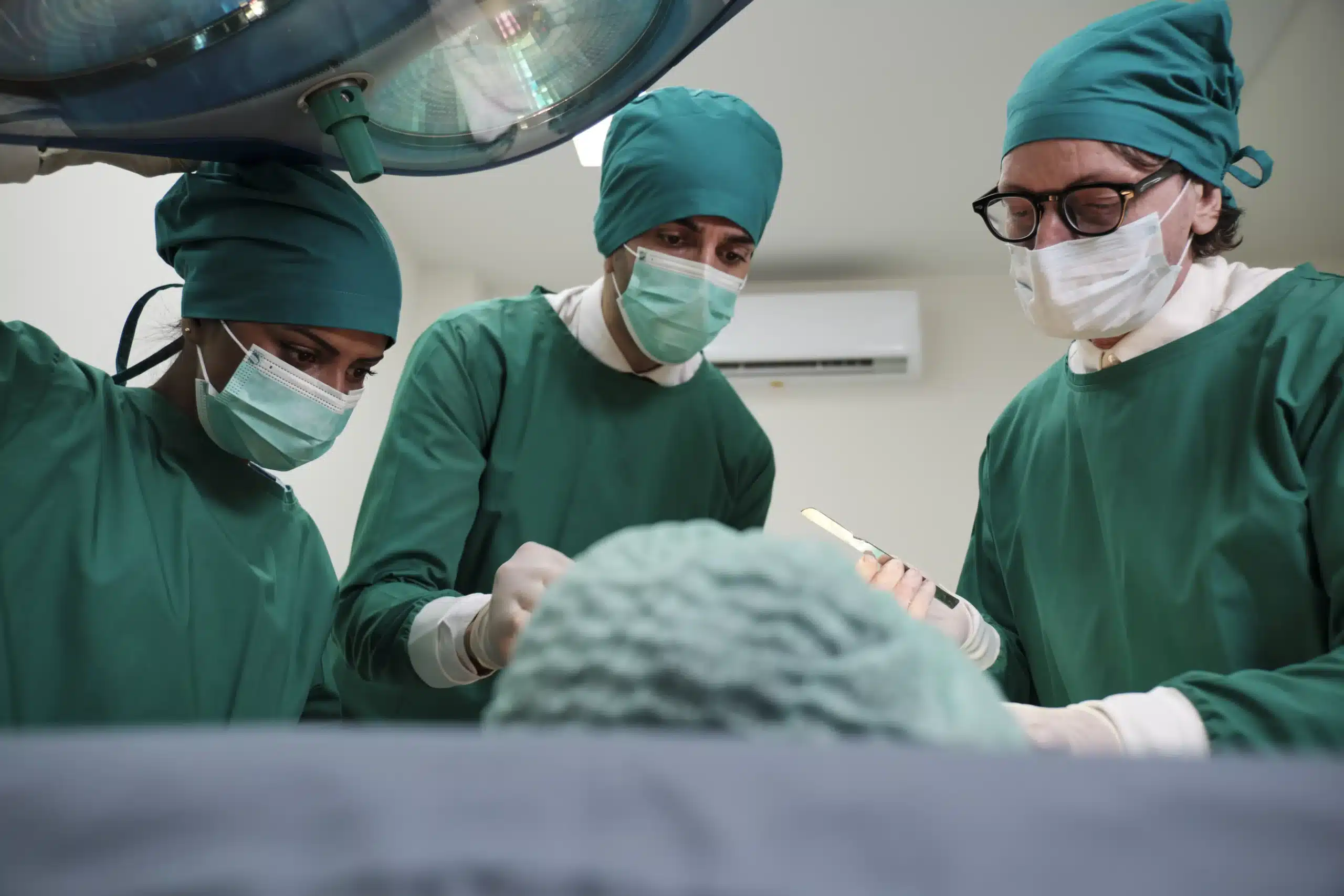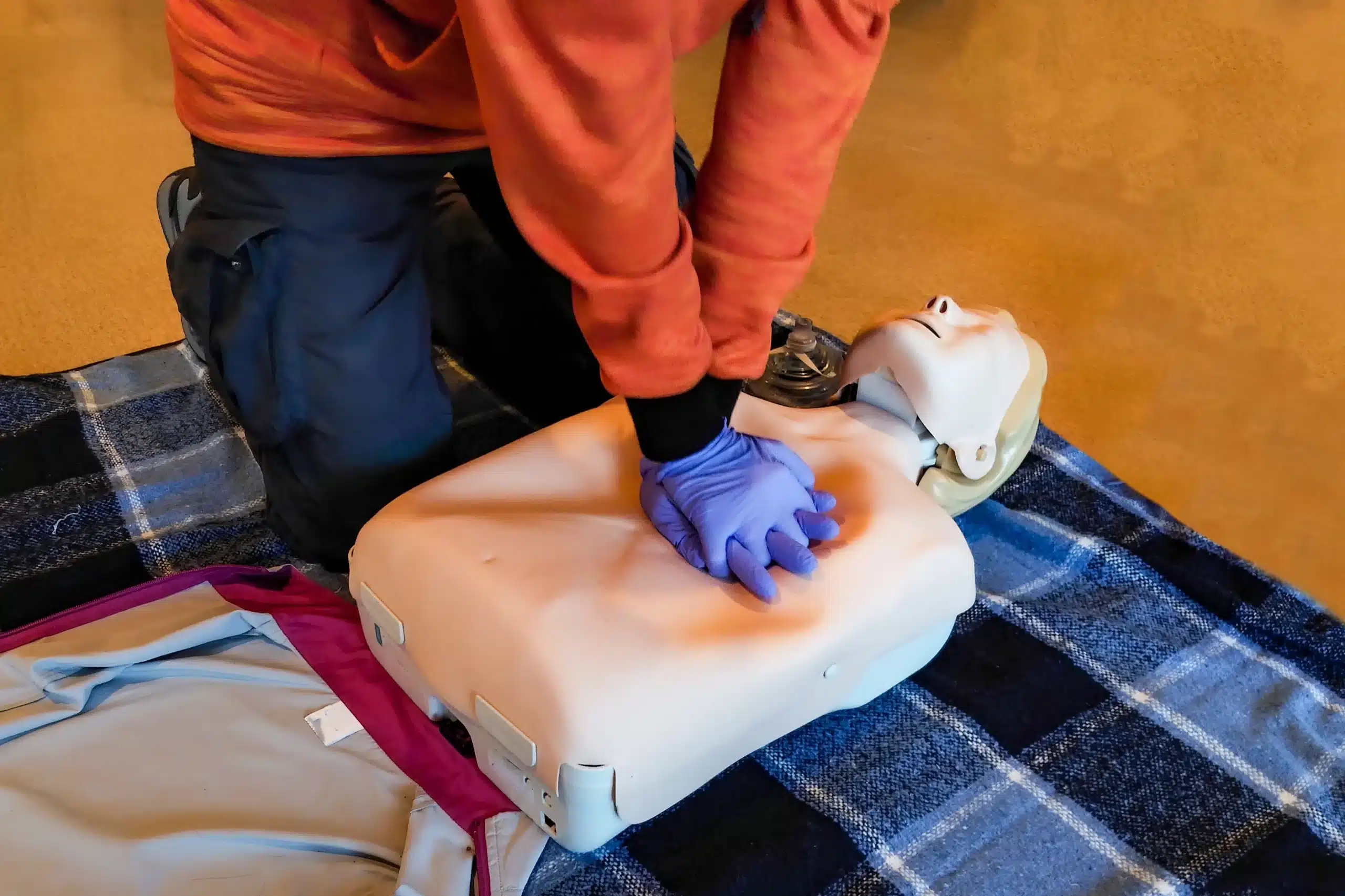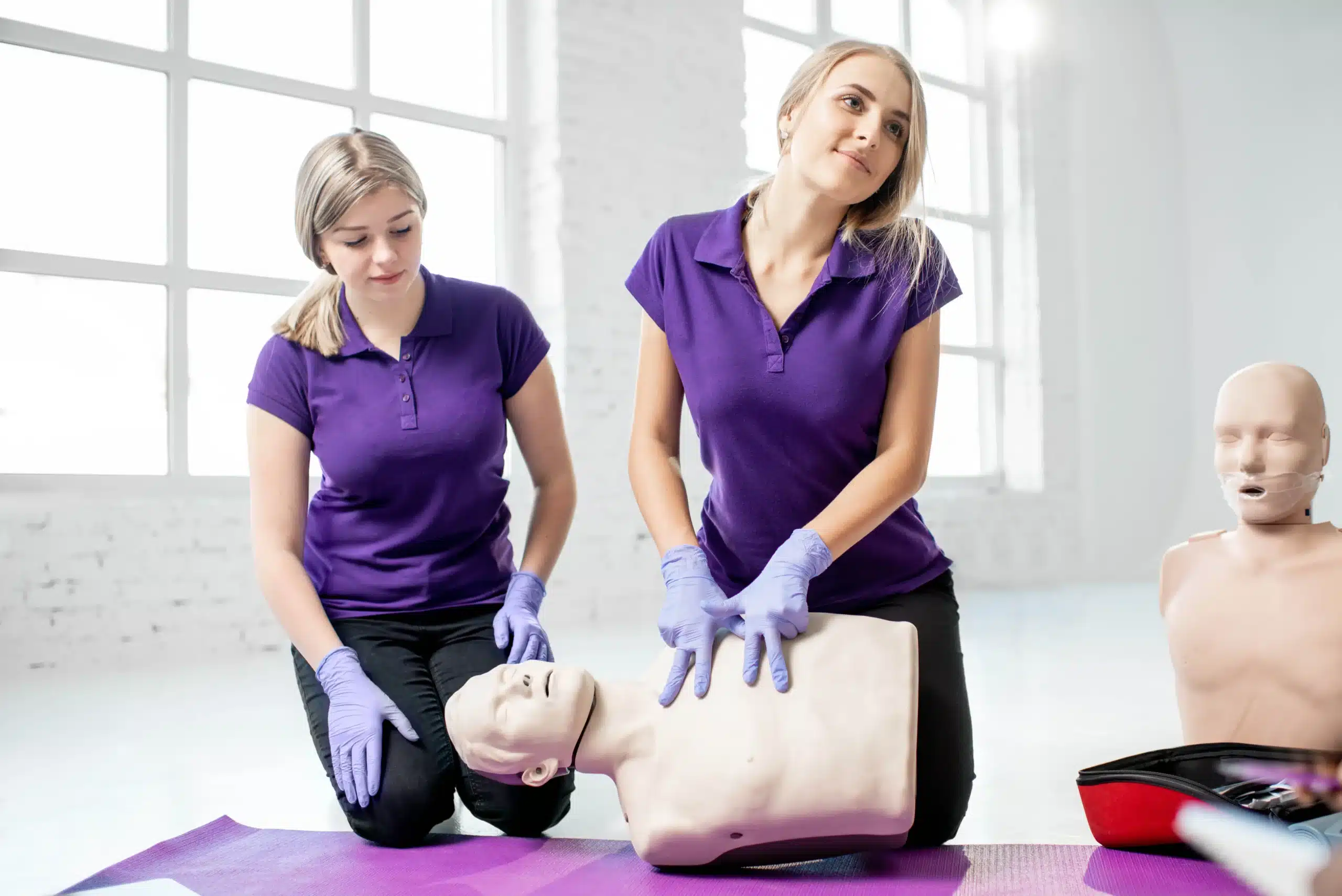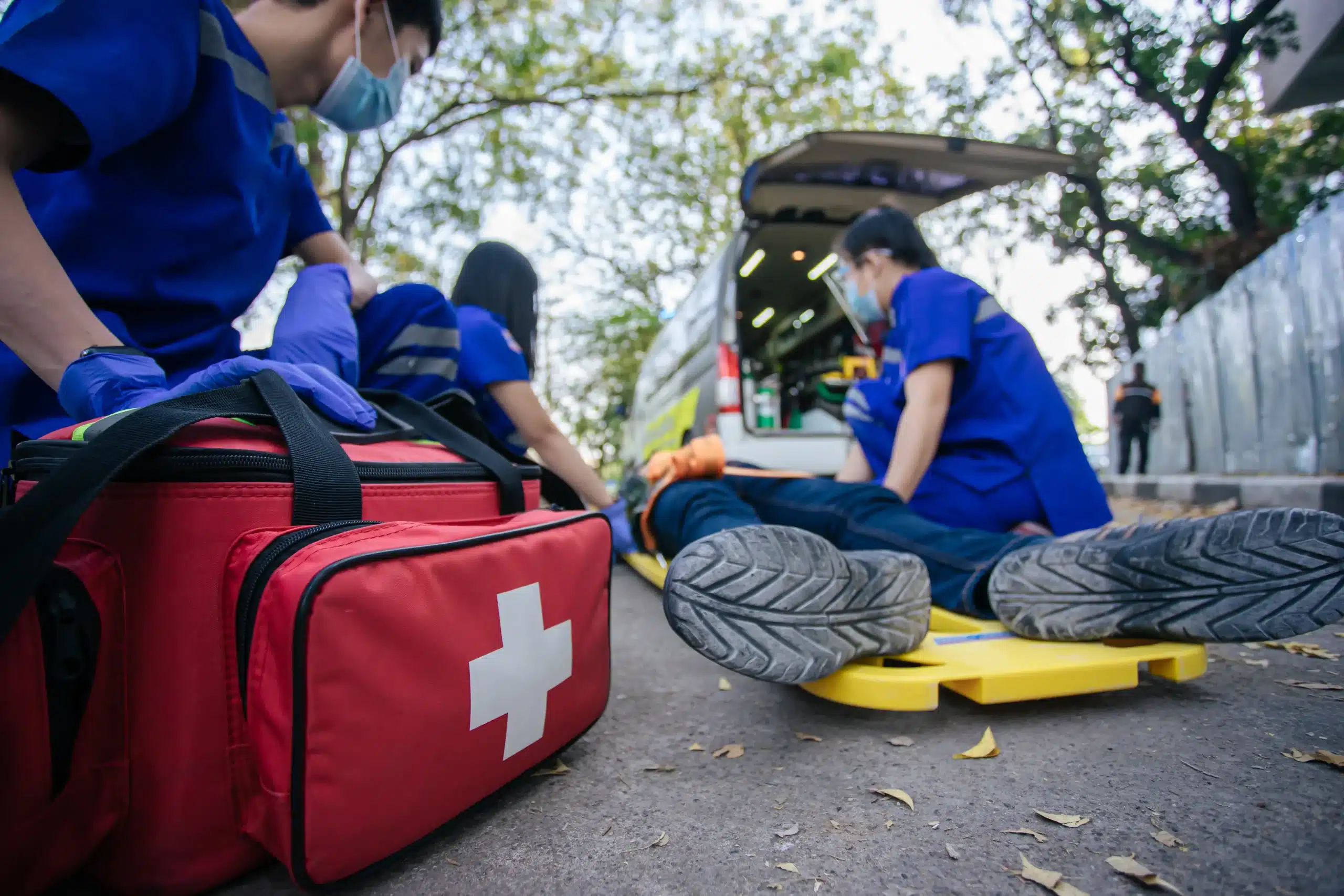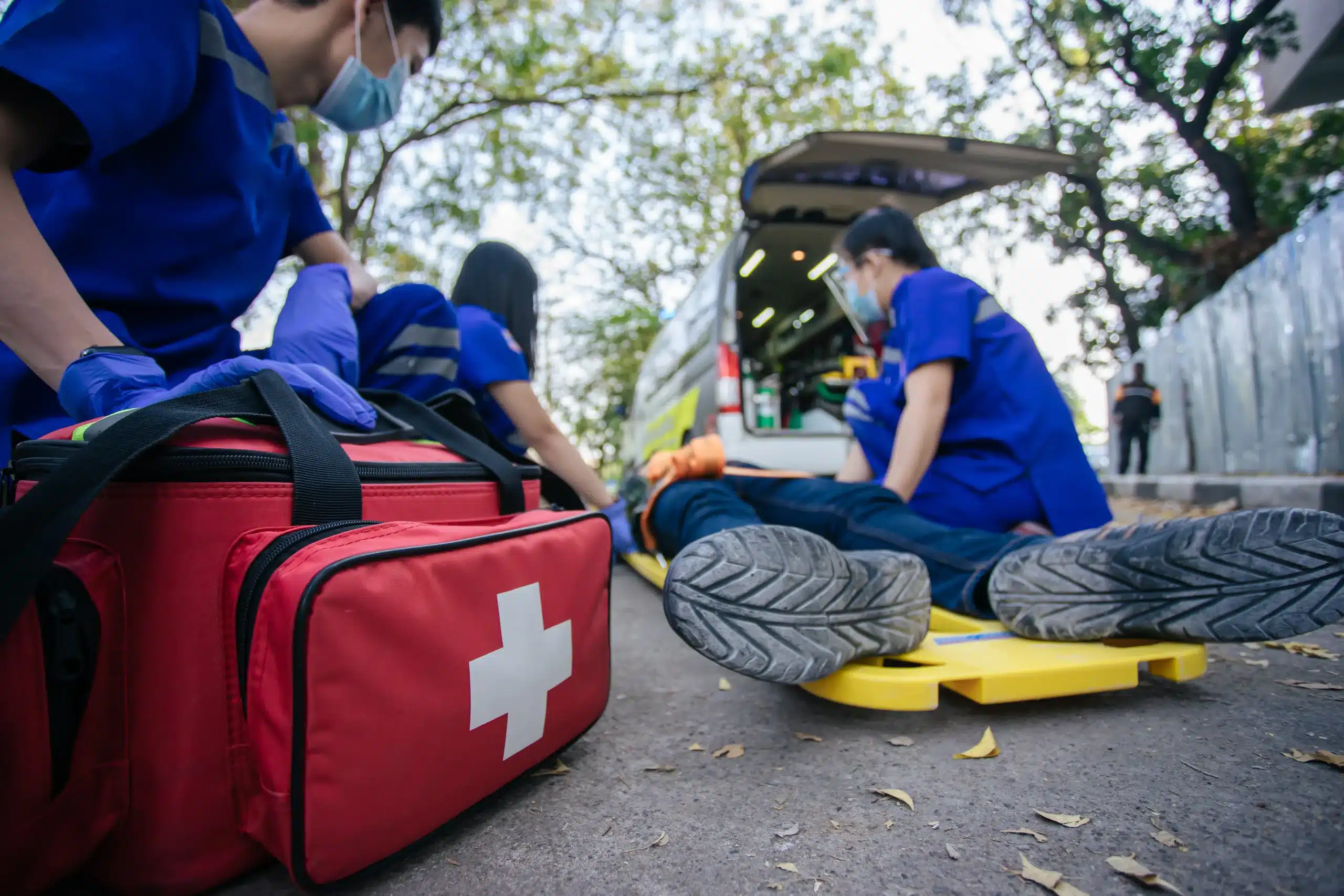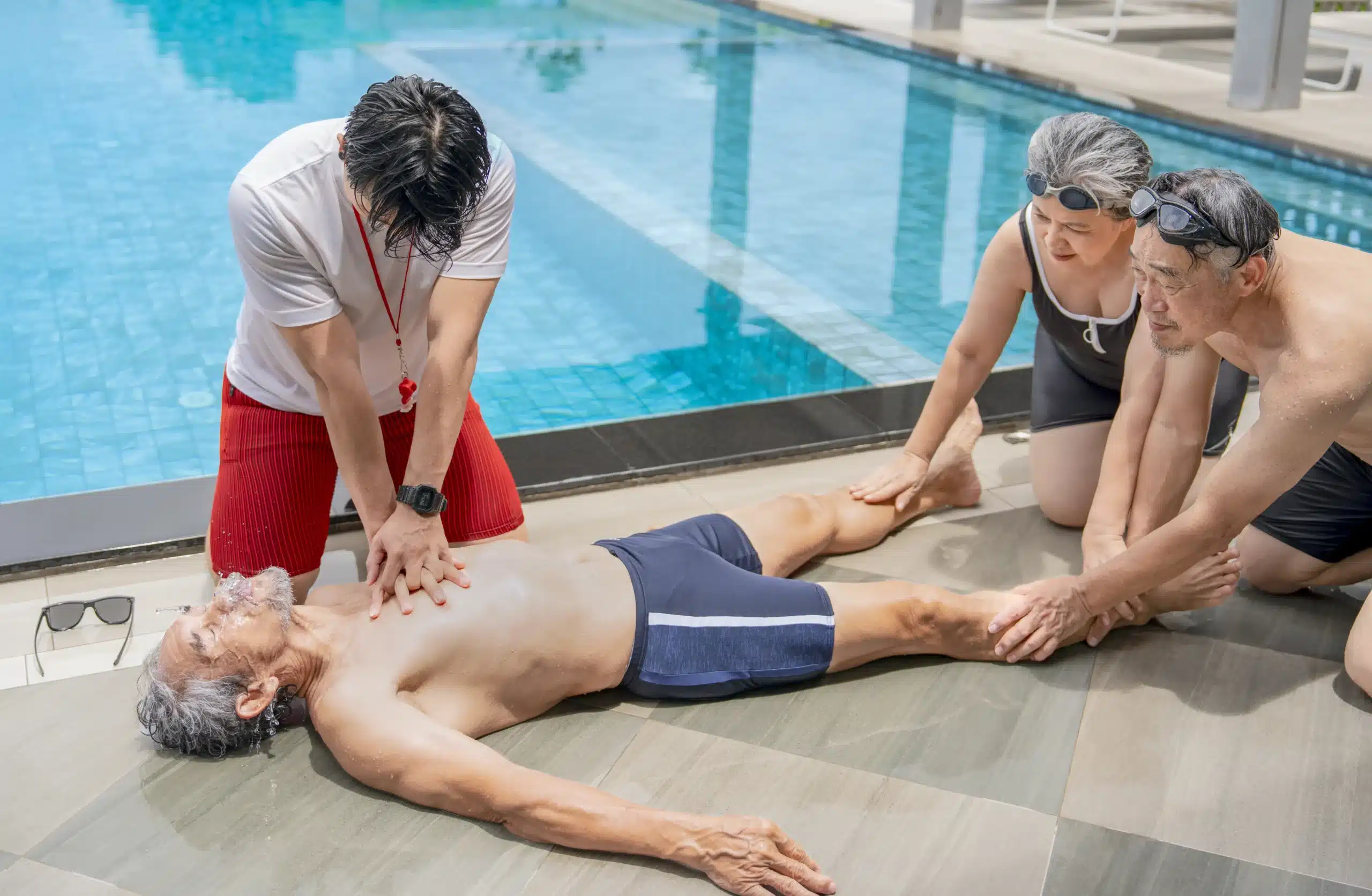Are you a healthcare professional in Santa Clara looking to advance your skills and improve patient outcomes? Advanced Cardiovascular Life Support (ACLS) certification is a crucial asset in any healthcare provider’s toolkit. This in-depth guide explores the world of American Heart Association ACLS courses in Santa Clara, providing valuable insights into the curriculum, certification process, and the essential skills you’ll gain. Whether you’re a seasoned healthcare worker or just starting your career, this article will equip you with the knowledge you need to make informed decisions about your ACLS training.
Key Takeaways
- ACLS is crucial for healthcare providers: It provides the advanced skills needed to manage complex cardiovascular emergencies, leading to better patient outcomes. Choose a course with flexible scheduling that fits your learning style.
- Preparation is key for ACLS success: Familiarize yourself with core concepts and practice with simulations and online resources. Ask your instructor for support when needed.
- Maintain your ACLS certification: Stay current with guidelines and pursue continuing education to refine your skills. Consider adding complementary certifications like PALS or BLS.
What is ACLS? Why is it Important for Healthcare Professionals?
Understanding Advanced Cardiovascular Life Support (ACLS) and its importance is crucial for healthcare professionals. This section breaks down what ACLS is and why it’s a vital skill set.
What is Advanced Cardiovascular Life Support (ACLS)?
ACLS is an advanced, evidence-based resuscitation curriculum. It goes beyond basic life support (BLS) to equip healthcare providers with the knowledge and skills to manage complex cardiovascular emergencies and patients in critical condition. These emergencies can include cardiac arrest, stroke, myocardial infarction (heart attack), and other life-threatening conditions. ACLS emphasizes the importance of teamwork, effective communication, and high-performance resuscitation techniques. The training covers a wide range of topics, from recognizing and interpreting electrocardiograms (ECGs) to administering medications and using advanced airway management techniques. It’s a comprehensive program designed to give healthcare professionals the tools they need to act decisively and confidently in critical situations. Learn more about our ACLS course offerings.
ACLS and Patient Care
The importance of ACLS certification for healthcare professionals cannot be overstated. It directly impacts patient care by enabling faster response times and more effective interventions during life-threatening cardiovascular events. Studies have shown that timely and effective ACLS interventions significantly improve patient outcomes, increasing the chances of survival and minimizing long-term complications. ACLS training empowers healthcare professionals to provide the highest quality of care during critical moments, ultimately saving lives. It also fosters a culture of preparedness and teamwork within healthcare settings, leading to better communication and coordination among medical teams. This collaborative approach is essential for managing complex emergencies and ensuring the best possible outcomes for patients.
ACLS Courses in Santa Clara: What to Expect
This section covers what you can expect from an ACLS course, from the curriculum and certification process to the hands-on skills assessments.
Course Structure and Content
ACLS training equips healthcare providers with the advanced skills needed to manage complex cardiac emergencies. The course blends theoretical knowledge with practical application, ensuring you’re prepared for real-world scenarios. You’ll learn the importance of team dynamics and communication—essential during high-pressure situations. As noted in this article on real-world ACLS application, the training goes beyond textbook knowledge to prepare healthcare professionals for the unpredictable nature of emergencies. Expect a dynamic learning environment that combines lectures, discussions, and hands-on practice. At Santa Clara CPR Classes, we emphasize these core elements to provide comprehensive training.
Certification: Process and Validity
After completing the ACLS course, you’ll receive certification validating your knowledge and skills in managing cardiac emergencies. This certification demonstrates you’re up-to-date with the latest techniques and protocols, which is crucial for healthcare providers. The training includes hands-on instruction and simulated cases designed to hone your skills in recognizing and intervening during cardiopulmonary arrest. This ensures healthcare providers are knowledgeable about the most current techniques for managing these critical situations. Our Santa Clara CPR classes offer certification aligned with the latest American Heart Association guidelines.
Skills Assessment and Scenarios
Throughout the ACLS course, you’ll participate in skills assessments to master essential techniques. These evaluations pinpoint areas for improvement and build confidence in responding to cardiovascular emergencies. Articles like this one on common mistakes in ACLS training can offer valuable insights as you prepare for the course. We incorporate realistic scenarios and simulations into our courses, providing valuable practice in a safe and controlled environment. This approach helps you develop the critical thinking and decision-making skills necessary for effective patient care during real emergencies. Our instructors provide personalized feedback and guidance to help you succeed.
Who Needs ACLS Certification?
Who Should Get Certified?
ACLS certification is crucial for healthcare professionals responsible for managing and treating patients during cardiovascular emergencies. This includes physicians, nurses, paramedics, respiratory therapists, and other medical personnel working in emergency rooms, intensive care units, and other critical care settings. Developing a deep understanding of advanced cardiac life support techniques is key to providing effective and timely interventions. ACLS training builds confidence and equips healthcare providers with the skills to handle these high-pressure situations. This preparedness translates to improved patient outcomes and a more effective healthcare team.
Prerequisites
Before enrolling in an ACLS course, there are a few prerequisites. First, you must have a current American Heart Association BLS for Healthcare Providers certification. You’ll need to bring your BLS provider card to the first day of class. Beyond the BLS certification, a foundational understanding of key concepts is also expected. This includes a working knowledge of electrocardiogram (ECG) rhythm interpretation for core ACLS rhythms, familiarity with airway management techniques and equipment, and a basic understanding of ACLS medications and their pharmacological effects. These prerequisites ensure you’re well-prepared to absorb the advanced material covered in the ACLS course.
ACLS Course Options in Santa Clara
Santa Clara offers a range of ACLS courses to fit your learning style and schedule. Let’s break down the options to help you find the best fit.
Online vs. In-Person
Many ACLS courses in Santa Clara use a blended learning format. This means you’ll complete the RQI course online at your own pace before scheduling an in-person skills session. This approach offers flexibility and lets you review course materials as needed, increasing your chances of success on the skills test. This self-paced online portion is a popular choice for busy healthcare professionals.
Flexible Scheduling
Finding time for professional development can be tough. Santa Clara CPR Classes offers ACLS courses seven days a week, typically between 7 am and 6 pm. This flexible scheduling makes it easier to fit the training into your busy work life. Plus, you’ll receive your ACLS Provider certification card the same day you complete the course.
Costs and Value
The total cost for the ACLS course, including the online portion, in-person skills test, and certification card, is $290. Santa Clara CPR Classes offers a low price guarantee, ensuring you receive high-quality training at a competitive price. If you find a lower advertised price for an equivalent course, they will match it. For any questions about pricing or to register for an upcoming course, feel free to contact them.
Mastering ACLS: Key Skills and Techniques
The ACLS course equips healthcare providers with the knowledge and skills to manage cardiopulmonary emergencies effectively. Let’s break down the core components:
ECG Interpretation
Accurate ECG interpretation is fundamental to ACLS. You’ll learn to recognize various cardiac rhythms, including bradycardia and tachycardia. More importantly, you’ll learn to identify life-threatening arrhythmias like ventricular fibrillation. This skill is crucial for rapid diagnosis and appropriate intervention during a cardiac arrest. Understanding the nuances of an ECG reading allows you to make informed decisions about patient care.
High-Quality CPR
ACLS builds upon the foundation of basic life support (BLS) skills. High-quality CPR is paramount in maintaining circulation and oxygenation during a cardiac arrest. You’ll refine your technique, focusing on proper chest compressions and ventilation rates. The goal is to minimize interruptions. Consistent, effective CPR significantly improves a patient’s chances of survival.
Team Dynamics and Communication
Effective teamwork is essential in high-pressure emergency situations. ACLS training emphasizes clear communication, defined roles, and coordinated efforts within the resuscitation team. You’ll practice communicating effectively during simulated scenarios. This ensures smooth transitions and minimizes errors in critical moments. This collaborative approach streamlines the process and improves patient outcomes.
Pharmacology in Cardiac Emergencies
Understanding the appropriate use of medications in cardiac emergencies is a critical aspect of ACLS. You’ll learn about the various drugs used during a cardiac arrest. The training covers their mechanisms of action, dosages, and potential side effects. This knowledge allows you to administer medications safely and effectively, optimizing patient care during these critical events. ACLS courses are regularly updated to reflect the latest evidence-based practices and guidelines.
Advanced Airway Management
Maintaining a patent airway is vital during a cardiac emergency. ACLS training covers advanced airway management techniques, including intubation and other methods to secure the airway. You’ll develop the skills to manage complex airway scenarios, ensuring adequate oxygen delivery and ventilation. This expertise is essential for optimizing respiratory support during resuscitation efforts.
Common ACLS Course Challenges
The ACLS course equips healthcare providers with life-saving skills, but it also presents some common challenges. Understanding these hurdles can help you better prepare and succeed in your training. Let’s break down a few of them:
Understanding Complex Algorithms
ACLS algorithms, which are systematic approaches to patient care, can feel intricate at first. They cover various cardiac emergencies and require you to make quick, informed decisions. Review the ACLS guidelines before the course begins. This preparation will build a solid foundation, making it easier to grasp the concepts during training. Don’t hesitate to ask your instructor for clarification—they are there to support you. Our ACLS course is designed to simplify these complex algorithms and make them easier to understand and apply.
Time Management During the Exam
The ACLS exam involves both written and practical components, often under pressure. Effective time management is essential to complete all sections accurately. Practice answering questions under timed conditions to simulate the exam environment. This will help you pace yourself and avoid rushing through critical sections. Familiarize yourself with the exam format beforehand to avoid any surprises on test day.
Dealing with Test Anxiety
Test anxiety is a common experience, especially with a certification as important as ACLS. Remember, you’ve put in the work, and you’re capable of succeeding. Practice relaxation techniques like deep breathing to manage stress. Visualize yourself confidently performing skills and answering questions correctly. Adequate preparation is the best antidote to anxiety, so make sure you’ve dedicated enough time to studying and practicing. Consider these tips for online ACLS courses if that’s the format you’ve chosen. Reach out to your instructor or classmates for support—you’re not alone in this.
Preparing for ACLS Success: Study Tips and Resources
So, you’ve decided to pursue your ACLS certification—fantastic! Preparing effectively is key to confidently managing cardiovascular emergencies. This section offers practical advice and resources to help you succeed.
Essential Study Materials
Start by reviewing the ACLS guidelines and algorithms before the course. This foundational knowledge will give you a head start. The ACLS Provider Manual is your essential resource, covering all the critical concepts and procedures. Create a realistic study schedule to stay organized and manage your time.
Practice Tests and Simulations
Hands-on practice is essential for mastering ACLS. Practice tests offer a safe space to apply your knowledge and identify areas for improvement. Video tutorials can further reinforce your understanding of key techniques. Focus on high-yield topics—those most likely to appear on the exam—to make the most of your study time.
Mobile Apps and Online Resources
Several online resources and mobile apps can supplement your ACLS preparation. MasterACLS.com is a valuable tool with practice questions, simulations, and up-to-date information. Some apps provide quick access to ACLS algorithms, helpful during real-life emergencies. Remember, active engagement with the material is more effective than passive learning. Make sure you’re committing these skills to long-term memory. Use these resources strategically to reinforce your learning and build confidence.
Complementary Courses for Emergency Care
Earning your Advanced Cardiovascular Life Support (ACLS) certification is a significant step, but it’s often part of a broader journey in emergency medical training. Other courses complement the advanced skills you learn in ACLS, creating a well-rounded foundation for providing high-quality patient care. Let’s explore two key certifications that often go hand-in-hand with ACLS.
BLS Certification
Basic Life Support (BLS certification) is the cornerstone of emergency medical care. It’s the essential first response to life-threatening situations like cardiac arrest or respiratory failure. BLS focuses on immediate interventions, including high-quality CPR (cardiopulmonary resuscitation) with chest compressions and rescue breaths, using an AED (automated external defibrillator), and relieving choking. A strong understanding of BLS principles is crucial before taking an ACLS course, as ACLS builds upon these fundamental skills. Think of BLS as the foundation upon which you’ll build more advanced life-saving techniques. It ensures you can effectively respond to basic emergencies and contribute as a valuable team member during more complex situations. For healthcare providers, obtaining BLS Certification is an essential first step.
PALS Training
Pediatric Advanced Life Support (PALS training) focuses on the specialized care of infants and children facing life-threatening illnesses or injuries. While ACLS addresses adult emergencies, PALS equips healthcare providers with the knowledge and skills to manage pediatric emergencies effectively. These emergencies often require different approaches and considerations due to children’s unique physiology. PALS covers topics like respiratory distress, shock, and cardiac events in pediatric patients. It emphasizes the importance of rapid assessment, effective interventions, and teamwork in pediatric emergency situations. If you work with children or anticipate encountering pediatric emergencies, PALS certification is a valuable addition to your skillset. It empowers you to provide specialized care tailored to the specific needs of young patients. Combined with ACLS and BLS training, PALS provides comprehensive training in emergency care.
Choosing Your ACLS Provider in Santa Clara
Choosing a Course
Finding the right ACLS course is crucial for healthcare providers looking to enhance their skills and advance their careers. ACLS training equips healthcare providers with the advanced skills needed to manage complex cardiac emergencies, ultimately improving patient outcomes. When selecting a course, consider factors like the instructor’s experience, the curriculum’s alignment with the latest American Heart Association (AHA) guidelines, and the availability of hands-on practice and simulation scenarios. A comprehensive ACLS course should cover essential topics such as ECG interpretation, high-quality CPR, team dynamics, and pharmacology in cardiac emergencies. The right training will not only prepare you for the ACLS certification exam but also boost your confidence in real-world emergency situations.
Why Choose Santa Clara CPR Classes?
Santa Clara CPR Classes offers AHA ACLS classes designed to meet the needs of busy professionals. Our affordable, daily courses are led by expert instructors committed to providing high-quality training. We offer both online and in-person options to fit your learning style and schedule. The online portion takes 3–4 hours, while the in-person skills test takes only 40 minutes. The total cost of $290 includes the online course, skills test, and your certification card. Our convenient Santa Clara location serves Milpitas, San Jose, and the surrounding areas. We also offer a Low Price Guarantee, ensuring you receive top-notch training at a competitive price. Contact us today to learn more and register for a course.
Other Local ACLS Providers
While we believe Santa Clara CPR Classes offers the best combination of value, convenience, and quality instruction, we understand you may want to explore other options. Here are a few other providers in the area:
Stanford Health Care
Stanford Health Care offers a range of ACLS courses designed to meet the needs of healthcare professionals. You can find more information about their programs on the Stanford Health Care website.
El Camino Hospital
El Camino Hospital also provides ACLS training, often emphasizing hands-on practice and real-world scenarios. Visit the El Camino Health website for details on their course offerings.
Kaiser Permanente Santa Clara Medical Center
Kaiser Permanente Santa Clara Medical Center offers ACLS courses that align with the latest AHA guidelines. Check the Kaiser Permanente website for more information on their training programs.
Maintaining Your ACLS Certification
Once you’ve earned your ACLS certification, staying current is key. Knowing the renewal process and pursuing continuing education will keep your skills sharp and your certification valid.
Renewal Process
ACLS certification is typically valid for two years. To maintain your credentials, renew your certification before it expires. This involves retaking the ACLS course and passing the skills assessment. Make sure you present your current AHA-issued BLS and ACLS provider cards when you arrive for the ACLS course. If your ACLS certification has lapsed, you’ll need to retake the full course. Check with your certifying body, such as the American Heart Association, for the most up-to-date renewal requirements. Santa Clara CPR Classes adheres to these AHA guidelines to ensure your certification meets current standards.
Continuing Education Opportunities
Think of maintaining your ACLS certification as more than just a requirement—it’s a chance to enhance your skills and stay at the forefront of advanced cardiovascular care. Continuing education opportunities, like those offered at Santa Clara CPR Classes, allow you to refine your techniques and deepen your understanding of complex algorithms. These courses also provide valuable hands-on practice and simulations, boosting your confidence in real-world emergency situations. Consider exploring additional certifications, such as PALS (Pediatric Advanced Life Support), to broaden your skillset. By actively pursuing continuing education, you not only maintain your certification but also demonstrate your commitment to providing excellent patient care.
Related Articles
- ACLS Courses for Nurses in Santa Clara: Certification Guide – Santa Clara CPR Classes
- ACLS Certification in San Jose: Your Comprehensive Guide – Santa Clara CPR Classes
- ACLS Courses in Santa Clara: Your Complete Guide – Santa Clara CPR Classes
- ACLS HeartCode Santa Clara: Your Certification Guide – Santa Clara CPR Classes
- AHA ACLS Classes in Santa Clara, CA – Santa Clara CPR Classes
Frequently Asked Questions
How long is the ACLS certification valid? ACLS certification is typically valid for two years. You’ll need to retake the course and pass the skills assessment to renew your certification before it expires.
What are the prerequisites for taking an ACLS course? You must have a current American Heart Association BLS for Healthcare Providers certification and bring your BLS provider card to the first day of class. A basic understanding of ECG rhythm interpretation, airway management techniques, and ACLS medications is also expected.
What is the difference between BLS and ACLS? BLS (Basic Life Support) focuses on immediate life-saving techniques like CPR, using an AED, and relieving choking. ACLS (Advanced Cardiovascular Life Support) builds upon BLS, equipping healthcare providers with more advanced skills to manage complex cardiovascular emergencies. Think of BLS as the foundation, while ACLS provides the tools for more specialized interventions.
What if my ACLS certification has expired? If your ACLS certification has lapsed, you’ll need to retake the full course and pass the skills assessment to regain your certification.
What does an ACLS course typically cover? An ACLS course covers a range of topics, including ECG interpretation, high-quality CPR, team dynamics and communication, pharmacology in cardiac emergencies, and advanced airway management. The course combines theoretical knowledge with hands-on practice and simulations to prepare you for real-world scenarios.
